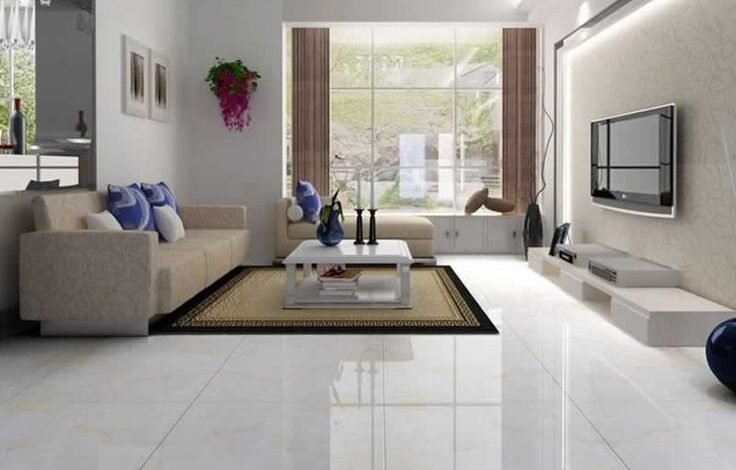The Benefits of Installing Tiles in Your Home

Transforming your home’s aesthetic and functionality can be as straightforward as updating your flooring and wall surfaces. Tiles, with their versatility and durability, offer an exceptional choice for both. In this article brought to you by TileKing who are known for their supply of some of the best tiles in Dubai, we will explore the numerous advantages of installing tiles in your home, from their easy maintenance to their vast range of styles. Discover how tiles not only enhance the beauty of your space but also contribute to a healthier, more sustainable living environment.
Durability: Built to Last
One of the standout features of tiles is their exceptional durability. Designed to withstand the rigors of everyday life, tiles are an ideal choice for areas of your home that see a lot of foot traffic. Here’s why tiles stand out as a robust flooring and wall solution:
Resilience: Tiles are incredibly hard-wearing. Ceramic and porcelain tiles, in particular, are resistant to scratches, dents, and stains, making them suitable for kitchens, bathrooms, and entryways where the wear and tear are highest. Their tough surface can handle dropped items, pet nails, and high heels without showing signs of damage.
Longevity: When installed correctly, tiles can last decades. Their lifespan often outpaces that of carpet, wood, and vinyl. This enduring nature makes tiles a cost-effective option in the long run, as they rarely need to be replaced if maintained properly.
Moisture Resistance: Tiles are naturally water-resistant, especially glazed tiles or those made from porcelain. This makes them an excellent choice for wet areas like bathrooms and kitchens, as they prevent water damage and mold growth underneath the surface.
Maintenance Ease: Unlike other flooring options that might require special cleaners or treatments, tiles are low-maintenance. Regular sweeping and occasional mopping with mild detergent are all it takes to keep tiles looking new. They do not need to be sealed or polished frequently, adding to their practical appeal.
Low Maintenance: Effortless Upkeep
Tiles stand out as one of the easiest types of flooring and wall surfaces to maintain, offering a hassle-free solution for modern homes. Unlike carpet, which requires regular deep cleaning to remove stains and debris, or hardwood floors that need periodic refinishing, tiles offer a straightforward cleaning regimen. Their hard, smooth surfaces resist stains, dirt, and liquids, making them exceptionally simple to clean. A quick sweep or vacuum removes loose debris, and a damp mop with mild detergent is usually all that’s needed to tackle any spills or marks.
Furthermore, tiles don’t harbor allergens or dust mites, which is a significant advantage for anyone suffering from allergies or respiratory issues. This hypoallergenic quality ensures your home remains cleaner and healthier, without the extra effort required to maintain other flooring types. Additionally, tiles are resistant to mold and mildew, which are common issues in damp areas of a home. This resistance is especially beneficial in bathrooms and kitchens, where moisture levels are high, and hygiene is paramount.
The combination of durability and ease of maintenance makes tiles an excellent long-term investment for any home. With minimal effort, your tiled surfaces can look pristine and new for years, reflecting a clean and well-maintained appearance that requires far less labor than most other materials. This practical benefit not only saves time but also reduces the need for harsh chemicals and cleaners, making it an environmentally friendly choice as well.
Eco-Friendly Options: Sustainable Choices for Your Home
For eco-conscious homeowners, choosing the right materials can significantly impact both the environment and the indoor quality of their homes. Tiles offer several sustainable options that are both attractive and responsible:
Recycled Materials: Many tiles are now made from recycled materials, reducing the need for virgin resources and lowering the environmental footprint associated with their production. Glass tiles, for example, often contain a high percentage of recycled content from post-consumer and post-industrial sources, making them a popular choice for environmentally friendly home improvements.
Natural Clay and Stone: Tiles made from natural materials like clay (terracotta) and stone are inherently eco-friendly. They don’t emit volatile organic compounds (VOCs) and can often be sourced locally, reducing transportation-related emissions. Additionally, their longevity means less frequent replacement, thereby reducing waste.
Energy Efficiency: Ceramic and porcelain tiles help maintain consistent indoor temperatures due to their thermal mass properties. In the summer, they can keep your home cooler by absorbing and slowly releasing coolness, and in the winter, they can retain heat. This can lead to significant energy savings over time.
Biodegradable: Unlike some flooring options that can take centuries to decompose in landfills, natural stone and clay tiles are biodegradable. They break down over time without leaving harmful residues in the environment.
We appreciate you taking the time to explore the benefits of installing tiles in your home. Whether you’re drawn to their durability, low maintenance, or eco-friendly options, we hope this guide has provided you with valuable insights to help you make the best choices for your living spaces.



